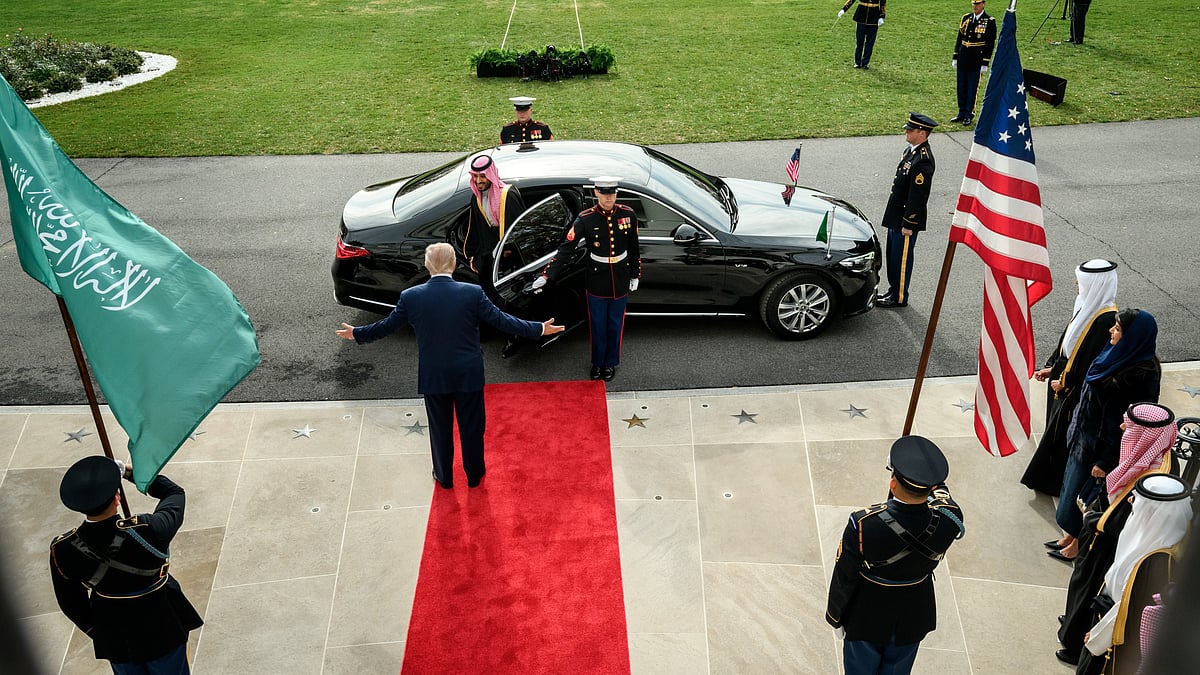World
Trump backs Saudi crown prince over Khashoggi killing as US resets ties with Riyadh
The 2018 killing of Khashoggi, a Virginia resident and outspoken critic of the Saudi leadership, had plunged US–Saudi relations into crisis

US President Donald Trump has dismissed American intelligence findings that Crown Prince Mohammed bin Salman likely authorised the killing of journalist Jamal Khashoggi, as he hosted the Saudi leader at the White House for his first visit in seven years, a meeting marked by pageantry, major investment announcements and renewed strategic alignment.
The 2018 killing of Khashoggi, a Virginia resident and outspoken critic of the Saudi leadership, had plunged US–Saudi relations into crisis. But during Tuesday’s Oval Office appearance, Trump said the matter was behind them, characterising Khashoggi as “extremely controversial” and insisting that the crown prince had no role in the murder, despite a declassified 2021 US intelligence report concluding he had likely approved the operation.
“Whether you liked him or didn’t like him, things happen,” Trump said, urging reporters not to “embarrass our guest” with questions about the killing. Prince Mohammed maintained that the kingdom had taken “all the right steps” to investigate what he called a “painful” mistake.
Human rights groups sharply criticised Trump’s remarks, accusing him of whitewashing the killing and downplaying Riyadh’s continued suppression of dissent. Raed Jarrar of DAWN, the organisation founded by Khashoggi, said Trump had “Khashoggi’s blood on his hands” and was making himself “complicit” in ongoing abuses.
During the visit, Prince Mohammed announced that Saudi Arabia would increase its planned investments in the United States to USD 1 trillion, up from the earlier commitment of USD 600 billion. He praised the US as the “hottest country on the planet” for investors, echoing language often used by Trump.
Published: undefined
The Trump family’s business ties to Saudi Arabia also drew scrutiny, with a London-based developer recently unveiling plans for a second Trump-branded real estate project in Jeddah. Trump rejected any suggestion of a conflict of interest, saying: “I have nothing to do with the family business.”
The crown prince received an elaborate welcome, complete with a military flypast and brass band salute, an honour typically reserved for heads of state. Although not a formal state visit, the White House spared little ceremony. Trump later hosted Prince Mohammed at a black-tie dinner attended by prominent figures including Elon Musk, Nvidia’s Jensen Huang and football star Cristiano Ronaldo.
During the visit, Trump designated Saudi Arabia as a major non-NATO ally, elevating bilateral defence ties. The two governments finalised agreements for the sale of F-35 fighter jets and nearly 300 tanks, along with cooperation pacts on financial regulation, critical minerals and countering terrorism financing.
The F-35 sale had stirred concern within parts of the US administration over potential risks to sensitive technology and implications for Israel’s qualitative military edge.
The visit also came as Trump sought to broaden the Abraham Accords, his flagship diplomatic initiative to foster Arab–Israeli reconciliation. He views Saudi Arabia’s entry into the accords as essential to securing long-term regional stability, especially after the devastating two-year conflict in Gaza.
But Prince Mohammed reiterated that any normalisation with Israel depended on establishing a clear and credible pathway to Palestinian statehood, a position at odds with the current Israeli leadership’s firm rejection of a two-state solution. “We want to be part of the Abraham Accords, but we must also be sure there is a clear path to a two-state solution,” he said.
With strategic interests, defence cooperation and investment commitments at the forefront, the White House visit signalled a renewed partnership between Washington and Riyadh, even as unresolved human rights concerns and the lingering shadow of Khashoggi’s murder continue to complicate the relationship.
With Agency Inputs
Published: undefined
Follow us on: Facebook, Twitter, Google News, Instagram
Join our official telegram channel (@nationalherald) and stay updated with the latest headlines
Published: undefined